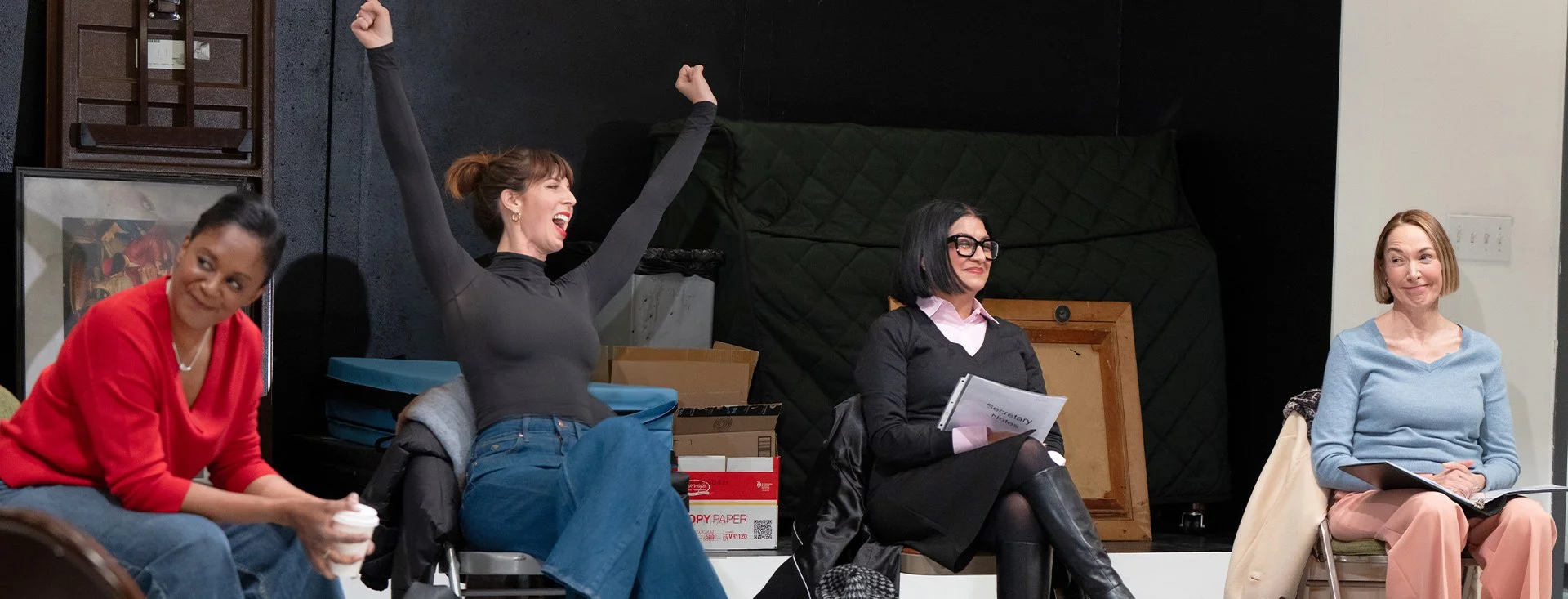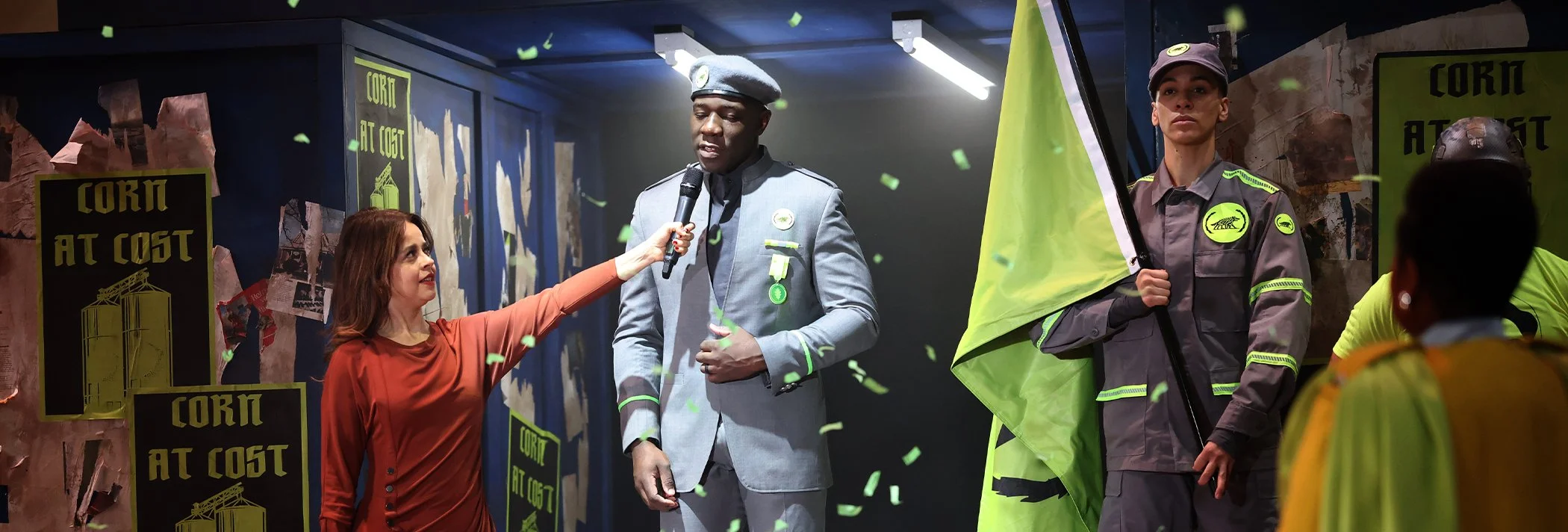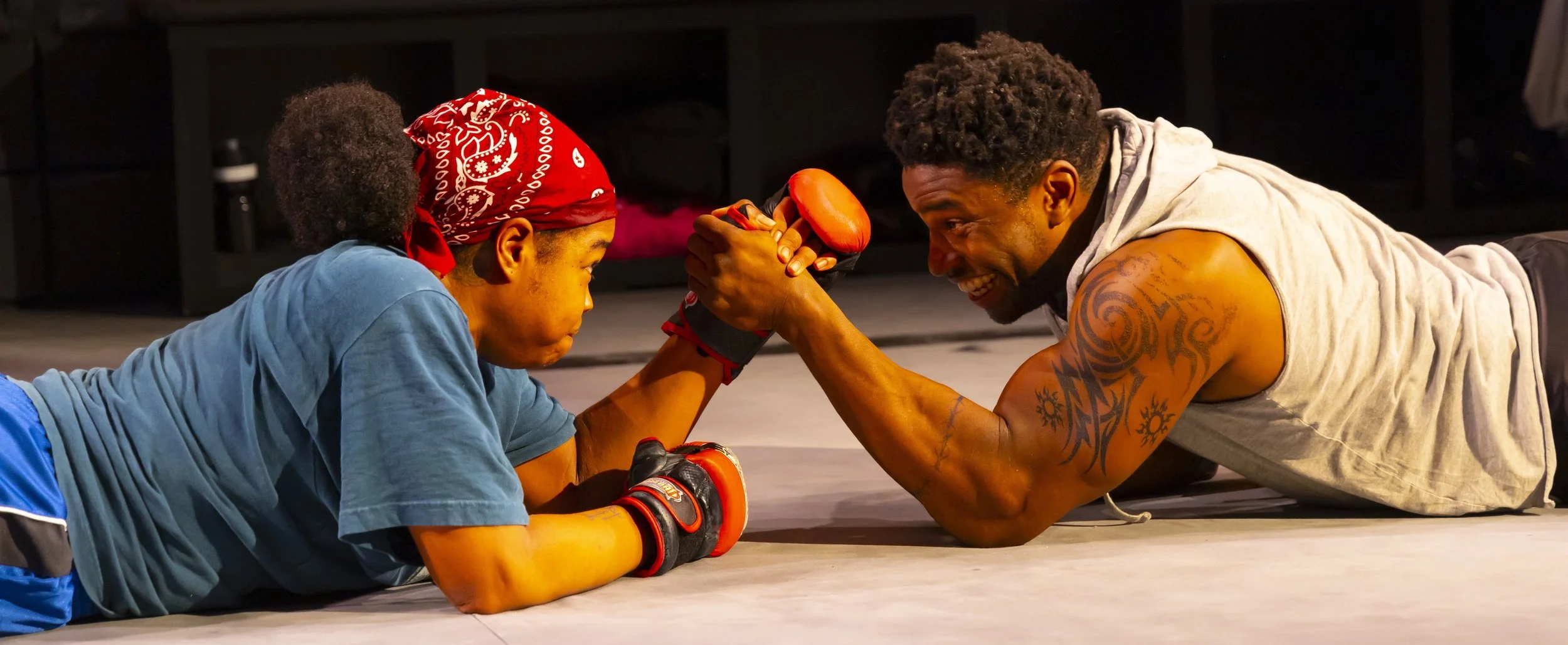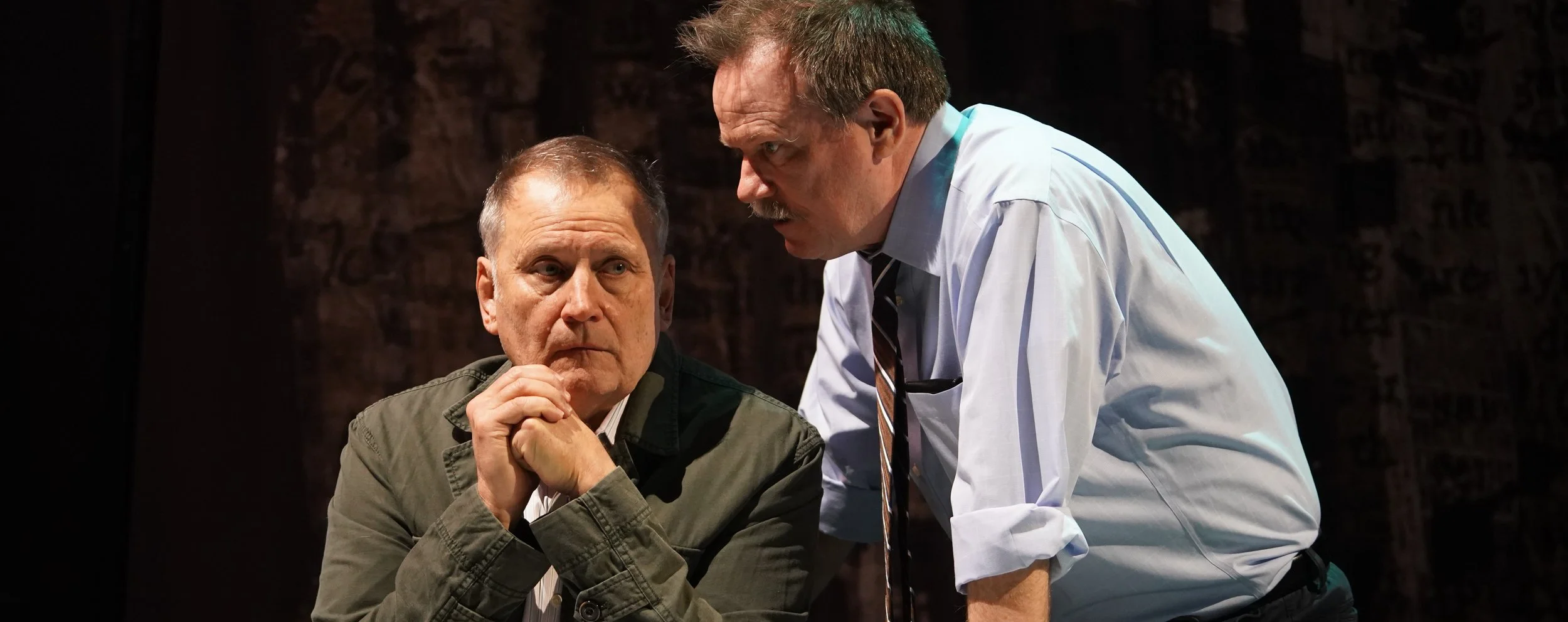It’s often been said that the problem with talking about the disabled is that they are defined by their dis-abilities rather than their abilities. The profundity of this perspective emerges in a moving narrative about a beautiful, blind Irishwoman who is given the gift of sight and how that changes her life and that of her husband and her doctor. In Irish Repertory Theatre’s Molly Sweeney, the last of the Friel Project offerings, prolific Irish playwright and author Brian Friel aptly illustrates how that gift is a mixed blessing.
Philadelphia, Here I Come!
Philadelphia, Here I Come, written in the 1960s by Irish playwright Brian Friel, poignantly captures the anticipation, fear, and excitement of emigrating to a new place. Set on the eve of departure, Friel’s play focuses on Gar, the would-be émigré, in both his Public self (played with subdued melancholy by David McElwee) as he struggles with his decision to leave, and his Private self (played with exuberance by A.J. Shively), screaming to get out. It’s deadly boring in Ballybeg, a tiny little corner of County Donegal, Ireland, where the most exciting things are a game of checkers and memories of teenage shenanigans.
Aristocrats
Brian Friel’s Aristocrats is often described as “Chekhovian,” and, indeed, the parallels to The Cherry Orchard and Three Sisters are unmistakable: three very different sisters of the O’Donnell family, along with their relations and hangers-on, navigate a collapsing estate, literally and figuratively, and grapple with a questionable family legacy and sense of purpose. Aristocrats is the second installment of the Irish Rep’s Friel Project, following an exquisite production of Translations.
Translations
More than 40 years have passed since Brian Friel’s Translations premiered, but Doug Hughes’s haunting new production shows that this play remains relevant as it explores the darker issues surrounding Anglo-Irish relations and the profound problem of language.










